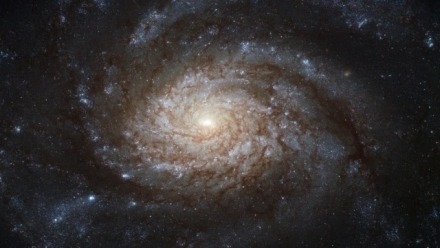THIS EVENT IS CANCELLED DUE TO THE CURRENT COVID-19 OUTBREAK.
This lecture is free and open to the public.
With the 250th anniversary of Lieutenant James Cook’s arrival at Botany Bay in April 1770, we are reminded of how this moment of European Discovery is still widely seen to mark the beginning of historical time in Australia. Is this a fitting origin story for today? And why is there seemingly only one ‘discovery’? Australia’s deep history, its over 60,000 years of Indigenous occupation of the Australian continent, are seen as static, as cultural perhaps, but not quite as historic. This Lecture will explore the legal and conceptual power of both new and old discovery narratives. It will explain what happened when scientists attempted to share the kudos of scientific discovery with Indigenous Australians at Lake Mungo/ Willandra Lakes. It will then turn to consider aspects of Indigenous deep histories of migration and discovery, such as David Unaipon’s story of the arrival of a people who travelled via the ancient continent of Lemuria. In European scientific and theosophical imagining, Lemuria was a fantastical land with land bridges to other continents, and which, according to Rudolf Steiner, was inhabited by a superior race. It appears that Unaipon was melding Indigenous knowledge of the Pleistocene-era continent now better known as Greater Australia or Sahul with contemporary European scientific ideas. In order to become a greater nation, I argue that Australians today need to consider a range of knowledge systems to appreciate the full scale of their continent’s long and dynamic history.
Date and time
Wed 18 Mar 2020, 6PM
Location
Kambri Cinema, Cultural Centre (Building #153), Kambri Precinct, University Avenue, Australian National University
Speaker
Ann McGrath AM is the W.K. Hancock Distinguished Professor in the School of History at the Australian National University, where she is Director of the new Research Centre for Deep History and holds the 2018 ARC Kathleen Fitzpatrick Laureate Fellowship. She is a Fellow of the Academy of Social Sciences and the Academy of Humanities. Her publications include Born in the Cattle: Aborigines in Cattle Country (1987) which won the inaugural WK Hancock Prize of the Australian Historical Association, and more recently Illicit Love: Interracial Sex and Marriage in the United States and Australia (2015) which won the NSW Premier’s History Prize. With Mary-Anne Jebb, she co-edited Long History, Deep Time (2015). With Ann Curthoys, she wrote How to Write History That People Want to Read (2009; 2011 ). She has also produced and directed the films Frontier Conversation and Message from Mungo (Ronin Films), has worked in museums and contributed to national enquiries.
W.K. Hancock Chair of History
The WK. Hancock Chair of History is named in honour of Sir William Keith Hancock (1898-1988), director of the Research School of Social Sciences (1957-61) and Professor of History (1957 -65) at the Australian National University. Professor Hancock, a Rhodes Scholar, also held chairs at Adelaide, Birmingham, London and Oxford, was one of four academic advisers who contributed to the foundation of the ANU, and was a leading figure in the establishment of the Australian Dictionary of Biography. Widely regarded as the leading historian of the British Empire and Commonwealth of his time, Professor Hancock made distinguished contributions to Italian, British, South African and Australian History, and he was a pioneering environmental historian.


